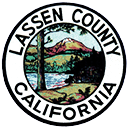Solid Waste Program
Department of Resources Recycling and Recovery (CalRecycle)
Home Generated Sharps Disposal
For more information on Home Generated Sharps Disposal, contact Lassen County Public Health (530) 251-8183.
Forms
Registration Permit Application
Medical Waste
Medical Waste Generator Permit Application
Medical Waste Small Quantity Generator Information
Body Art
Plastics
Plastic #1: Polyethylene Terephthalate (PET)
Typically used to make bottles for soft drinks, water, juice, mouthwash, sports drinks and containers for condiments like ketchup, salad dressing, jelly and jam, PET is considered safe, but it can actually leach the toxic metal antimony, which is used during its manufacture.
Plastic #2: High Density Polyethylene (HDPE)
HDPE, which is considered a low-hazard plastic, is often used for milk, water and juice bottles, as well as bottles for cleaning supplies and shampoo. It's also used to make grocery bags and cereal box liners. HDPE (like most plastics) has been found to release estrogenic chemicals.
Plastic #3: Polyvinyl Chloride (PVC)
PVC plastic can be rigid or flexible, and is commonly found in bags for bedding, shrink wrap, deli and meat wrap, plastic toys, table cloths and blister packs used to store medications. PVC contains toxic chemicals including DEHP, a type of phthalate used as a plastics softener. Phthalates are one of the groups of "gender-bending" chemicals causing males of many species to become more female. These chemicals have disrupted the endocrine systems of wildlife, causing testicular cancer, genital deformations, low sperm counts and infertility in a number of species, including polar bears, deer, whales and otters, just to name a few.
Plastic #4: Low Density Polyethylene (LDPE)
Another plastic that is considered a low hazard, LDPE is used in bags for bread, newspapers, fresh produce, household garbage and frozen foods, as well as in paper milk cartons and hot and cold beverage cups. While LDPE does not contain BPA, it may pose risks of leaching estrogenic chemicals, similar to HDPE.
Plastic #5: Polypropylene (PP)
PP plastic is used to make containers for yogurt, deli foods, medications and takeout meals. While polypropylene is said to have a high heat tolerance making it unlikely to leach chemicals, at least one study found that PP plastic ware used for laboratory studies did leach at least two chemicals.
Plastic #6: Polystyrene (PS)
Polystyrene, also known as Styrofoam, is used to make cups, plates, bowls, take-out containers, meat trays and more. Polystyrene is known to leach styrene, which can damage your nervous system and is linked to cancer, into your food. Temperature has been found to play a role in how much styrene leaches from polystyrene containers, which means using them for hot foods and beverages (such as hot coffee in a polystyrene cup) may be worst of all.
Plastic #7: Other
BPA and BPS are endocrine disrupters, which means they mimic or interfere with your body's hormones and "disrupts" your endocrine system. The glands of your endocrine system and the hormones they release are instrumental in regulating mood, growth and development, tissue function, metabolism, as well as sexual function and reproductive processes.
